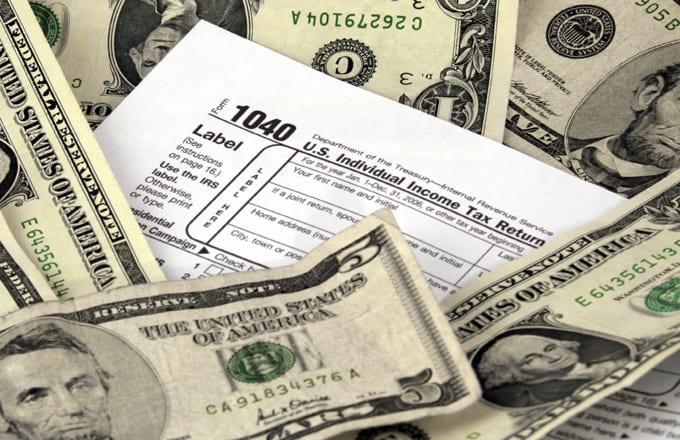US v. Kenneth and Kimberly Horner (11th Circuit, filed 4/13/17), Tax Fraud Convictions Affirmed– What NOT to do this Tax Season.
At this time of year, as everyone files tax returns, it’s good to keep in mind the kinds of conduct that is illegal. Do not do the things that the Horners have been convicted of doing unless you would like to do a stint in your local federal pen.
Here, the Horners had a towing and recovery business in an area outside of Atlanta. They received a fair amount of cash for its services from its clients. Simply, they did not report these cash payments on their taxes, which they had prepared by H&R Block. Indeed, they did not inform H&R Block of this money at all. Instead, they deposited those monies into their personal accounts. The IRS concluded these monies were diverted receipts from their business. The Horners were indicted for assisting in the preparation of fraudulent corporate tax returns and for filing false individual income tax returns (for the years 2007 and 2008; they were not charged for 2005 and 2006 tax returns).
Pretrial, the Horners sought to exclude certain pieces of evidence, including evidence that they “structured” their deposits to avoid having to file Currency Transaction Reports (CTR’s, which must be filed for cash deposits over $10K). They also argued that evidence relating to their 2005 and 2006 returns was inadmissible. Lastly, they argued that testimony from an IRS agent, relating what the proper tax amounts were had the Horners not engaged in the fraud, was inadmissible. The Horners also requested a jury instruction on good faith reliance on the advice of accountants (which the district court did give a modified instruction as to reliance on the advice of attorneys but replaced “attorneys” with “accoutants”), and the due diligence obligations of tax preparers generally (which the district court did not give).
On appeal, the Horners raised the following claims:
1) the Government elicited and failed to correct false testimony from the IRS agent regarding the extent of unclaimed deductions, 2) the district court should have given the requested jury instructions on good faith reliance on accountants’ advice and due diligence on the part of tax preparers, 3) the district court should have excluded the testimony on deposit “structuring” as irrelevant and unduly prejudicial; and 4) the district court should have excluded evidence of allegedly fraudulent tax returns from 2005 and 2006 as irrelevant, unduly cumulative, confusing, and prejudicial.
As to the IRS agent’s testimony, the Court found that the Horners failed to show that the agent’s testimony was false (let alone, intentionally false). Typically, a claim of prosecutorial misconduct is viewed de novo. United States v. McNair, 605 F.3d 1152 (11th Cir. 2010). Here, since the Horners did not object to this testimony at trial, it is reviewed for plain error. United States v. Nixon, 918 F.2d 895 (11th Cir. 1990). The Court did not perceive a problem with the agent’s testimony. The agent, in fact, repeatedly acknowledged the limitations of her analysis during cross-examination. For example, she agreed with defense counsel that her numbers “assumed no business expenses were paid from the personal account” and that “the unreported income would be reduced” to the extent any “business expenses were paid by the Horners.” The Court did not find that a Giglio violation occurred.
As to the jury instruction issue, the Court found that the district court did not abuse its discretion by giving the instruction that it did since it accurately reflected the law. The district court’s charge informed the jury that 1) good faith, including good faith reliance on the advice of professionals, is a complete defense to the charges of the indictment, 2) the Government has the burden to prove intent beyond a reasonable doubt, 3) good faith and intent were issues for the jury to decide; 4) evidence of good faith is inconsistent with the unlawful intent; 5) the defendants must have made a full disclosure of the relevant facts to the accountant for their reliance to have been in good faith; and 6) the defendants must have actually received and relied upon an accountant’s advice. See United States v. Kottwitz, 614 F.3d 1241 (11th Cir. 2010), opinion withdrawn in part on denial of reh’g, 627 F.3d 1383 (11th Cir. 2010); Eleventh Circuit Pattern Jury Instructions, Special Instruction 18. As to the jury instruction regarding the due diligence of the tax preparers, the Court found that where the evidence provides no support for a given instruction, it is not error to fail to give it. See United States v. Hill, 643 F.3d 807 (11th Cir. 2011).
Regarding the Horners’ claims of 1) the alleged structuring of cash deposits and 2) the false tax returns of 2005 and 2006, the Court reviews these evidentiary rulings for an abuse of discretion. Al-Amin v. Smith, 637 F.3d 1192 (11th Cir. 2011). The Court ruled there was no problem with admitting the evidence of structuring since that evidence was inextricably linked to the tax fraud because the cash deposits were unreported income and the structuring of those deposits potentially demonstrated a conscious effort to avoid the reporting requirements. Also, the probative value of the evidence clearly outweighed any undue prejudice. For the same reason, the earlier tax returns were admissible– they were closely related to the tax fraud in these cases, and any unfair prejudice from the evidence did not outweigh its probative value, especially since the Horners vigorously contested the issue of intent at trial. Alternatively, the Court also found that the admission of this evidence would be– at worst– harmless error.
In short, getting cash from the clients may be a good thing, but you need to make sure that you’re reporting it as income to avoid not only tax penalties, but also a criminal conviction.

